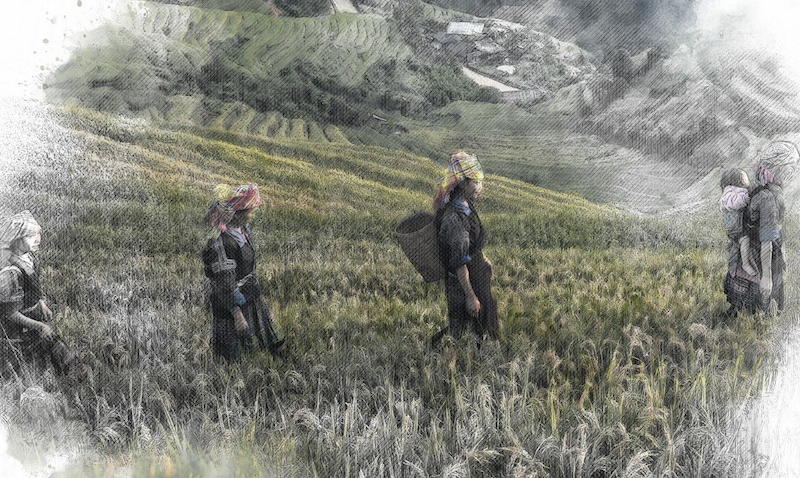By Oliver Schönweger, Lorenz Jenni and Darryl Vhugen
Access to and secured long-term rights to use land are an essential precondition for rural development, food production, security and social peace. The distribution and use of land is fundamental in rural areas and connected to a variety of thematic areas targeted in the Sustainable Development Goals. For example, to the achievement of SDG 5 on gender equality and the implementation of human rights. As land is a limited resource, its distribution is often disputed between a variety of actors. The competition for land may further be aggravated by larger commercial agriculture and forestry investments.
Such investments are often intended to generate value, providing positive impacts for the overall economy via land revenues and taxes, but also for the local communities in terms of livelihood improvement, job opportunities and transfer of know-how. However, if investments do not follow internationally agreed principles and guidelines, they run a high risk of having negative consequences on communities and the environment. Investments may lead to land-use disputes, expropriation, and displacement as well as environmental degradation, worsening the socio-economic situation of already disadvantaged groups.
This is where the project Promoting Responsible Governance of Investments in Land (RGIL), commissioned by the German Federal Ministry for Economic Cooperation and Development (BMZ) and co-financed by the European Union comes in. Implemented by Gesellschaft für Internationale Zusammenarbeit GmbH (GIZ) in Ethiopia, Laos and Uganda, the project aims to ensure that investments in land are productive, contribute to sustainable land management and respect the rights and needs of local people, in particular those of women and other vulnerable groups. RGIL works together with target communities, political partners and investors as well as civil society organizations, academia and investor associations on the implementation of good land governance based on international principles such as the Voluntary Guidelines on the Responsible Governance of Tenure (VGGTs) and the CFS’ Principles for Responsible Investment in Agriculture and Food Systems (CFS-RAI).
Among the outputs of the RGIL project are four guides aimed at helping all stakeholders achieve responsible land-based investments:
- The Introductory Guide for Communities, Governments and Investors seeks to provide an overview of required steps and actions for responsible land-based investments for all stakeholders and is meant to be used in conjunction with the stakeholder-specific manuals.
- Achieving Responsible Land-Based Investments: A Guide for Communities provides practical guidance on how communities can prepare for and decide whether to support investments.
- Promoting, Facilitating and Regulating Responsible Land-Based Investment: A Manual for Governments offers practical guidance to Government staff at central and local level in promoting, facilitating and regulating responsible land-based investments.
- Incorporating Responsible Land-Based Investment Principles into Investor Policies and Practices: A Manual for Investors sets forth practical guidance for investors in incorporating responsible land-based investment principles into investor policies and practices.
These resources were developed and validated in a participatory and iterative process with stakeholders in Ethiopia, Laos and Uganda after assessing capacity development needs and analyzing existing international and national guidelines, regulations and training material. They combine important elements from existing products and apply them specifically to the process of commercial land based investments and in relation to identified problems in the three countries. The various guides and manuals complement each other thematically and can be used both as individual products and as a complete toolkit in the respective country-specific or international context. They also reflect and complement country-specific guides produced under the project.
The RGIL team of GIZ and NIRAS-IP Consult welcomes comments from practitioners and others and sincerely hopes these resources add significant value to existing materials on responsible land-based investment.

